The environmental impact of fish farming is a global concern as advocates raise the alarm of fish farm operations on the environment.
Fish farming, also known as aquaculture, has become increasingly popular as a way to meet the growing demand for seafood while alleviating pressure on wild fish populations.
While it offers numerous benefits, it also comes with its own set of environmental challenges that need to be addressed.
In this article, we shall be looking at the various aspects of fish farming and its impact on the environment.
What is Fish Farming?
Fish farming involves the cultivation of fish in controlled environments such as ponds, tanks, or ocean enclosures.
These fish are raised for commercial purposes, including food consumption, ornamental purposes, and even conservation efforts.
The Importance of Fish Farming
Fish farming offers several advantages:
1. Meeting Demand
With the world’s population increasing daily, there is a growing demand for seafood. Fish farming helps meet this demand by providing a sustainable supply of fish without overexploiting wild fish populations.
2. Employment Opportunities
Fish farming creates jobs in rural and coastal areas, providing livelihoods for many people around the world.
Starting from fish farm site selection, fish pond establishment, breading of fish, fish feed formulation, fish rearing, and pond management. All these activities required labor and therefore served as employment to other people.
3. Reduced Pressure on Wild Fish Stocks
By cultivating fish in controlled environments, fish farming reduces the pressure on wild fish stocks, helping to preserve natural ecosystems.
As it stands now, overfishing and the use of chemicals in fishing in natural bodies is becoming high. These practices are bringing about extinction of the wild fish. Fish farming is the solution now.
4. Controlled Environment
Fish farming allows for the monitoring and control of water quality, temperature, and feeding, which can lead to healthier and more predictable fish yields.
This also makes it easy to know your source of fish and to determine how to rear them. Some prefer organic raised fish but this can only be assured through farmed fish since you can decide to rear them organically.
But that assurance cannot be given to the wild fish since they find what they feed on.
The Environmental Impact of Fish Farming
While fish farming offers several benefits, it also poses significant environmental challenges:
1. Habitat Destruction
The construction of fish farms, especially in coastal areas, can lead to habitat destruction. Clearing mangroves and other coastal ecosystems to make way for fish ponds can disrupt the balance of these fragile environments.
Such places serve as living environments for some organisms and the process of fish pond construction destroys their places.
2. Pollution
Fish farms produce waste in the form of uneaten food, feces, and chemicals used to treat diseases and parasites.
This waste can contaminate water bodies, leading to nutrient pollution, algal blooms, and oxygen depletion, harming aquatic life.
The smell of fish waste such as feces remains, chemicals and others also pollutes the air. This air pollution may also have climate issues which is a global concern now.
3. Spread of Disease
The high density of fish in aquaculture facilities can promote the spread of diseases and parasites. If not properly managed, these diseases can spill over into wild fish populations, posing a threat to biodiversity.
This usually happens because the fish are highly stocked, the infection of one fish can quickly transfer to all other fish in the pond which subsequently may transfer to natural bodies if using race or Cage Systems.
4. Genetic Pollution
Escaped farmed fish can interbreed with wild populations, leading to genetic pollution and potentially weakening the genetic diversity of native species
5. Use of Resources
Fish farming requires significant amounts of resources, including water, energy, and feed.
The production of fish feed, in particular, often relies on wild-caught fish, contributing to overfishing of marine resources.
The energy consumption in fish farming too is high. The feed production, operations of the Recirculating Aquaculture System (RAS), and lighting all use electricity.
6. Soil and Land Degradation
The construction of ponds, especially earthen ponds requires digging of the land either manually or by excavator.
During the construction, soil erosions may be caused by heavy rains therefore destroying the environment.
“Soil quality is a major factor in developing a new fish farm. However, at the end of the farm’s lifecycle, the soil has gone through a complete transformation and is an ecological mess. The soil surrounding the farm often becomes hypersaline, acidic, and eroded — and essentially becomes useless as fish and water waste seep into the surrounding land” Source
7. Deforestation
It’s very crucial to have your fish farm where trees are for several reasons. The trees preserve the water content of the land therefore preserving water for your farm.
The trees also make the environment cool for fish by serving as a cover, especially in places like Northern Ghana where the temperature is very high.
For all these reasons, fish farmers prefer constructing their fish farms at where there are trees. This means they will fall down the trees during the construction therefore causing deforestation which also has its environmental challenges.
Mitigating the Environmental Impact of Fish Farming
While the environmental impact of fish farming is significant, there are steps that can be taken to mitigate these effects:
1. Sustainable Practices
Adopting sustainable aquaculture practices, such as reducing waste, minimizing antibiotic use, and sourcing feed from alternative sources, can help lessen the environmental impact of fish farming.
2. Site Selection
Careful consideration of site selection can help minimize habitat destruction and reduce the risk of pollution.
Fish farmers should always choose locations away from sensitive ecosystems and ensure adequate water exchange. This can help mitigate negative environmental impacts.
3. Monitoring of Fish Farms
Fish farmers must Regularly monitor the water quality, disease prevalence, and escape events to help identify potential problems early and allow for prompt intervention.
When using the RAS system or changing the water in the pond, the waste should not be flashed into the water bodies. Or into the bare land. You can burry it under in a way of ‘sokaway’
4. Laws and Regulations
There should be both International and Local regulatory frameworks to ensure that fish farmers operate responsibly and adhere to environmental standards.
There are some regulations but they need to be more adhered to due to lack of supervision. So supervisional bodies should be formed alongside the regulatory framework to ensure checks and balances in the system.
Fish farmers who violate those rules and regulations should always be called to book. This will always serve as a lesson to all fish farmers.
4. Innovation and Technology
Investing in research and development of innovative technologies, such as Recirculating Aquaculture Systems (RAS) and genetically improved fish strains, can help make fish farming more efficient and environmentally friendly.
Experts Consultancy
Seeking aquaculture experts’ advice on how to operate fish farm without degrading the environment is very paramount. as the saying goes, “experienced is the best teacher”. Sure, “even though the new broom sweeps well, but the old one knows the corners” There is no doubt that those who are in the business for long have the necessary experience. Try checking out The Best Aquaculture Experts to enhance your aquaculture business.
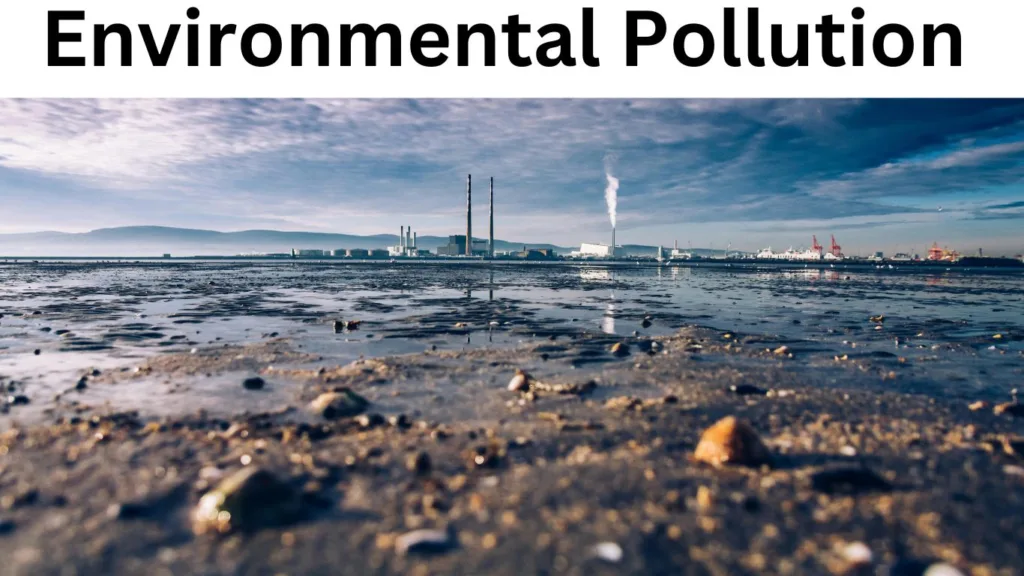
Conclusion
Fish farming offers a promising solution to the challenges of meeting the world’s growing demand for seafood.
However, it is essential to recognize and address its environmental impact to ensure the long-term sustainability of this industry.
By adopting sustainable practices, implementing effective regulations, and investing in innovation, we can minimize the negative environmental impact of fish farming. This will also pave the way for a more sustainable future.
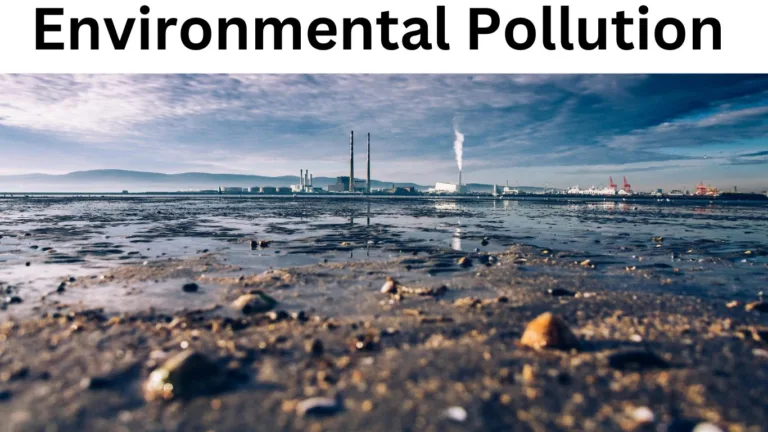
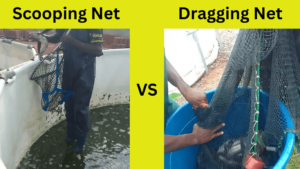
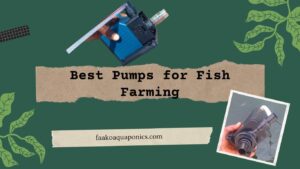
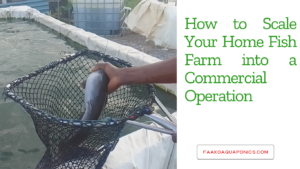
There is certainly a great deal to find out about this topic. I love all the points you have made.
You are so awesome! I don’t think I’ve read something like this before. So nice to find someone with unique thoughts on this subject. Really.. thank you for starting this up. This website is something that is required on the web, someone with some originality.
After looking over a handful of the articles on your blog, I honestly appreciate your technique of writing a blog. I saved it to my bookmark website list and will be checking back soon. Please check out my web site as well and tell me how you feel.
Greetings! Very helpful advice within this article! It is the little changes which will make the most important changes. Thanks for sharing!
You made some good points there. I checked on the net for additional information about the issue and found most people will go along with your views on this site.
I couldn’t resist commenting. Exceptionally well written.
You ought to take part in a contest for one of the greatest sites on the web. I will highly recommend this blog!
I like it when people come together and share ideas. Great website, continue the good work.
I really like reading a post that can make men and women think. Also, thanks for permitting me to comment.
You’re so interesting! I do not believe I’ve read through something like that before. So wonderful to discover somebody with a few genuine thoughts on this issue. Really.. many thanks for starting this up. This web site is something that’s needed on the internet, someone with a little originality.
You have made some decent points there. I looked on the web for more info about the issue and found most individuals will go along with your views on this site.
Your blog is a treasure trove of knowledge! I’m constantly amazed by the depth of your insights and the clarity of your writing Keep up the phenomenal work!
Excellent site you have here but I was curious
if you knew of any message boards that cover the same topics talked about in this article?
I’d really love to be a part of group where I can get responses
from other knowledgeable people that share the same interest.
If you have any recommendations, please let me know. Bless you!
You really make it appear really easy along with your presentation but I in finding this matter to be really something which I think I might by no means understand.
It sort of feels too complicated and extremely vast for me.
I am taking a look ahead in your next submit, I’ll attempt to get the
hold of it! Escape room
Your style is so unique compared to other folks I have read stuff from.
Thank you for posting when you have the opportunity, Guess I will just
book mark this site.
You’re so awesome! I do not think I’ve truly read through a
single thing like this before. So great to discover somebody with a few
genuine thoughts on this subject matter. Really..
thanks for starting this up. This site is something that is required on the internet, someone with a little originality!
Thank you very much for your word of encouragement. I am glad you found this useful
[…] Environmental effects of fish farmers include water pollution, land degradation, and air pollution. All these types of environmental pollution are caused by fish farmers. […]
You have made some good points there. I looked on the net for more information about the issue and found most individuals will go along with your views on this
site.
great to know this. Thanks
[…] Environmental impact: Assess potential environmental impacts and comply with regulations to minimize any adverse effects. Also, consider modern technological […]
[…] farming activities can have environmental impacts, such as water pollution and habitat destruction, if not managed […]
Fantastic beat ! I wish to apprentice whilst you amend your
site, how could i subscribe for a weblog site? The account helped me a acceptable deal.
I were a little bit familiar of this your broadcast
provided vivid clear concept
Thanks
[…] is becoming a key focus in fish farming due to concerns about overfishing, environmental degradation, and the impact of aquaculture on ecosystems. The future of fish farming, Moving forward, […]
[…] Uneaten feed is one of the primary sources of waste in fish farming. Despite efforts to optimize feeding practices, a portion of the feed often goes unconsumed, contributing to environmental pollution. […]
What’s Happening i’m new to this, I stumbled upon this I’ve discovered It absolutely helpful and it has aided me
out loads. I’m hoping to contribute & aid other customers like its helped me.
Great job.
I’m glad is impactful
[…] Urban Fish farming, also known as urban aquaculture, has emerged as a sustainable solution to meet the growing demand for seafood in cities while reducing pressure on wild fish populations. In urban areas with limited space, innovative approaches are essential to maximize productivity while minimizing environmental impact. […]